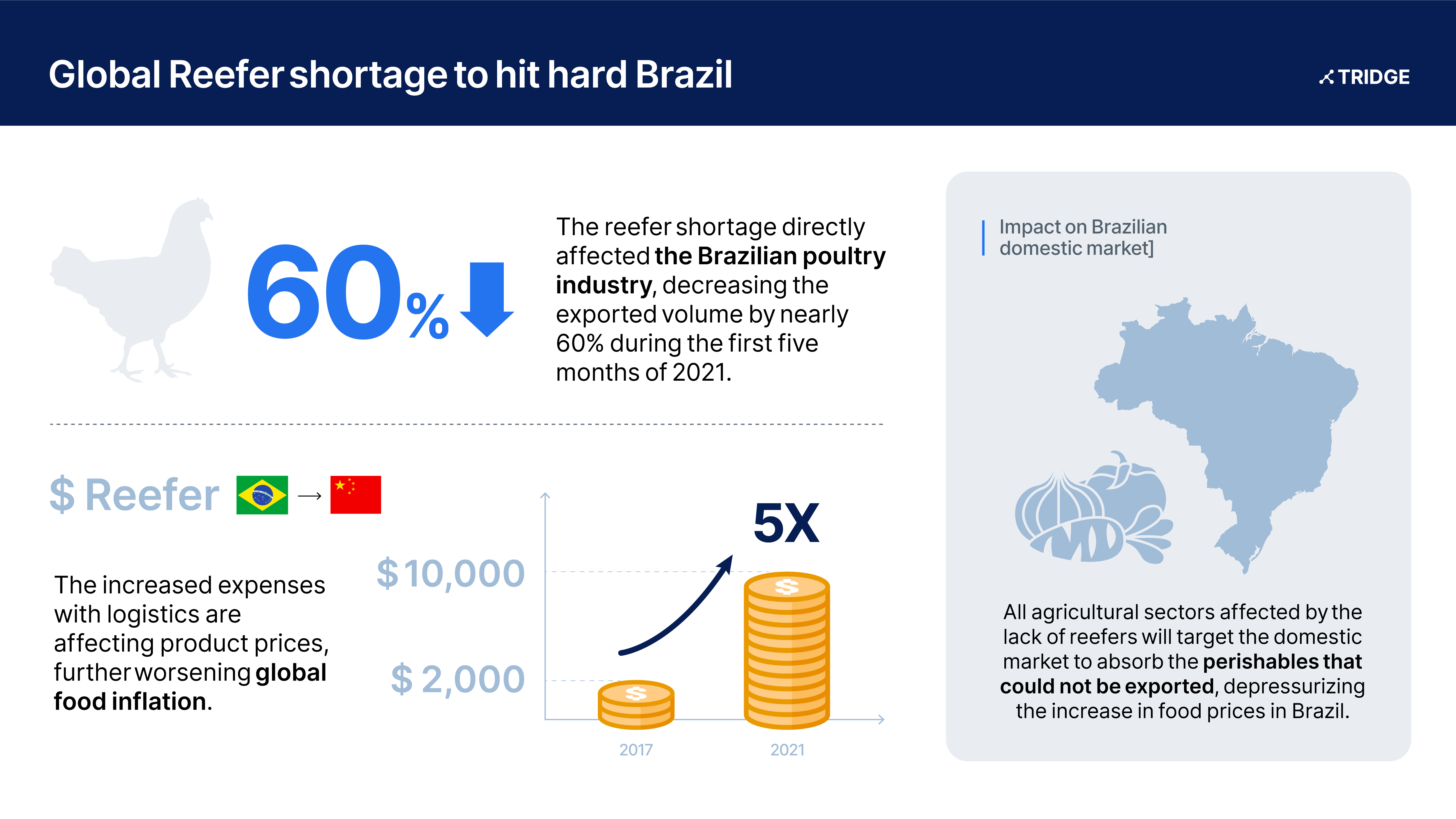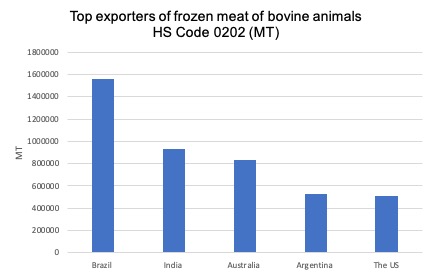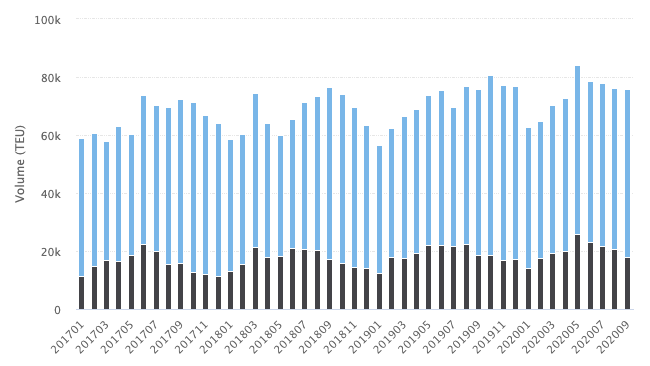Global Reefer shortage to hit hard Brazil

Brazil is currently suffering from a severe shortage of refrigerated containers, most commonly known as reefers. The reefers are used in abundance to export perishables such as fruits, vegetables, and especially animal protein that need temperature control to keep them fresh or frozen. Brazil is the world leader in meat exports with 1.56 million MT of frozen beef and offals, 3.94 million MT of meat, and edible offals of fowls exported in 2020 making the use of reefers essential for the Brazilian agricultural trade.

Source: Tridge, ITC
The shortage is causing a surge in reefers’ rental prices and freight costs. As a comparison of prices, in 2017, the cost for a 20 ft reefer to be shipped from Brazil to China cost USD 2,000, and by 2021 the same route costs on average USD 10,000. The increased costs with logistics are affecting product prices, inflating global food prices.
Monthly Brazilian exports used on average 53,000 reefers of 20ft in 2020, which represented a growth of 6.9% between January and September in comparison with the same period of 2019.
And the combined exports from Brazil, Paraguay, Uruguay, and Argentina had a growth of 6% in the usage of reefers in the same period. Most of the growth is related to the high demand for animal protein from China.
Exports of reefer containers from Brazil, Argentina, Paraguay, and Uruguay

Source: DataLiner
The reefer shortage situation has not been worse in Brazil, because the Brazilian beef exports in 2021 have decreased by 4.7% in the first five months of the year in comparison with the same period of last year due to the decrease in demand from China. The high Brazilian beef prices and the start of the recovery of the Chinese hog herds depressurized the demand for beef in China. The Brazilian poultry industry is also affected by the reefer shortage, with a decrease of the exported volume of nearly 60%, directly related to the shortage of reefers. All agricultural sectors affected by the lack of reefers will target the domestic market to absorb the perishables that could not be exported, depressurizing the increase in food prices in Brazil.
The shortage of reefers is not only in Brazil, it is a global problem that is affecting all the food production chains. The reason for the imbalance started before the pandemic in 2019 with the huge Chinese demand for animal protein that was aggravated with the outbreak of the African Swine Fever in China that decimated the Chinese hog herds. During the pandemic, the ports got shut down, stockpiling containers in Chinese ports, drastically reducing the availability of reefers globally. China receives a huge amount of reefers in the country but most of its outbound exports use dry containers without refrigeration for their exports of non-perishables, causing the reefers to stay in China due to its higher pricing for its use and less available space inside the container. The situation has further aggravated with the Suez Canal blockage in March with the aground container ship that lasted for a few days, congesting the ports and due to the delay in arrival.
To overcome the situation, reefers are being offered to be used as NOR (Non-operating reefer) with a discount so they can be distributed globally. The other option is to move the empty reefers from China to the countries that need them, but this will increase even more the freight and rental costs. The situation is expected to last at least until the end of the year according to specialists of the area.
Sources:
- Datamar News. “Brazilian reefer container handling grew almost 7% between Jan and Sept 2020”
- G1. Translated from Portuguese. "Beef exports from Brazil decrease 18% in May”
- Guia Maritimo. Translated from Portuguese. “Lack of containers push the use of Nor containers”
- JB Litoral. Translated from Portuguese. “Container shortage affects marine freight in Brazilian ports”
- Jornal do Comercio. Translated from Portuguese. “Reefer containers shortage affects exports”
- Noticias Agricolas. Translated from Portuguese. “Export of beef reduces for the second consecutive month”
- Produce Report. “Southern Africa facing reefer shortage”